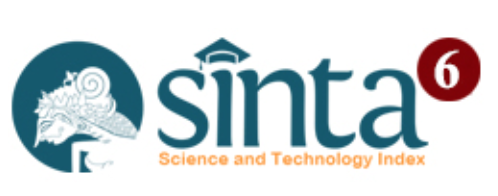SOSIALISASI PENGOLAHAN SAMPAH BERBASIS SUMBER DAN PRAKTEK PEMBUATAN ECO-ENZYME DAN KOMPOS DI DESA ADAT SABA
Abstract
The population of Indonesia and the very rapid development of industry have caused the amount of waste to increase or increase and it has not been managed well by the government and society, so waste has become a problem that can damage the environment. Of the total waste produced, around 80% is dominated by organic waste which is only seen as residual waste that has no economic value and causes environmental pollution. In accordance with the circular letter from the Governor of Bali regarding source-based waste management which has not been implemented effectively by every traditional village, through the KKN UNHI activities of Saba Village Group 10, socialization of source-based waste management and the practice of making compost and eco enzymes was carried out. This activity aims to socialize the waste management process and practice processing organic waste by making compost and eco-enzymes. Socialization and practical activities for making composters and eco enzyme liquids were carried out at the Banjar Hall of Saba Traditional Village, Blahbatuh District, Gianyar Regency which was attended by PKK throughout Saba Village, KWT Lestari Saba and STT Saba Traditional Village. Eco enzymes produced from organic waste, namely leather and vegetables, mixed with sugar and water and fermented for 3 months have benefits as house cleaning agents, effective natural fertilizers and pesticides, farming and purifying water, air and soil. Apart from being useful in helping the community in processing organic and inorganic waste, it also has economic value and helps government programs in preserving the environment in order to save the earth from global warming.
References
Anak Agung Komang Suardana, N. P. (Oktober 2021 ). Pengolahan Sampah Organik Berbasis “Eco-Enzyme” Di Desa Batannyuh, Marga, Tabanan. Jurnal Sewaka Bhakti, Volume 7, Nomor 2.
Cucuk Wawan Budiyanto, A. Y. (Januari 2022). Mengubah Sampah Organik Menjadi Eco Enzym Multifungsi: Inovasi di Kawasan Urban. Dedikasi: Community Service Reports, Vol.4 Issue 1.
Nurhamidah, N. A. (tahun 2021). Pengolahan Sampah Organik Menjadi Eco-Enzyme pada Level Rumah Tangga menuju Konsep Eco-Community. Andromeda: Jurnal Pengabdian Masyarakat Rafflesia, Volume 1 No 2.
Rahmat Tisnawan, M. F. (Tahun 2020 ). Mengelola Sampah Menjadi Pupuk Kompos Di Kelurahan Rantau Panjang Rumbai Pekanbaru. Jurnal Pengabdian Masyarakat Multidisiplin, Vol. 4 No. 2.
Robert Sinaga, L. P. (tahun 2022). Sosialisasi Pembuatan Eco Enzyme Kepada Warga Desa Perumnas Simalingkar Kecamatan Pancur Batu Kabupaten Deli Serdang. Abdi parahita : Jurnal Pengabdian Masyarakat – Universitas Quality, Volume 1, Nomor 2.
Ulfia Septiani, N. R. (tahun 2021 ). Eco Enzyme: Pengolahan Sampah Rumah Tangga Menjadi Produk Serbaguna di Yayasan Khazanah Kebajikan. jurnal.umj.ac.id .





